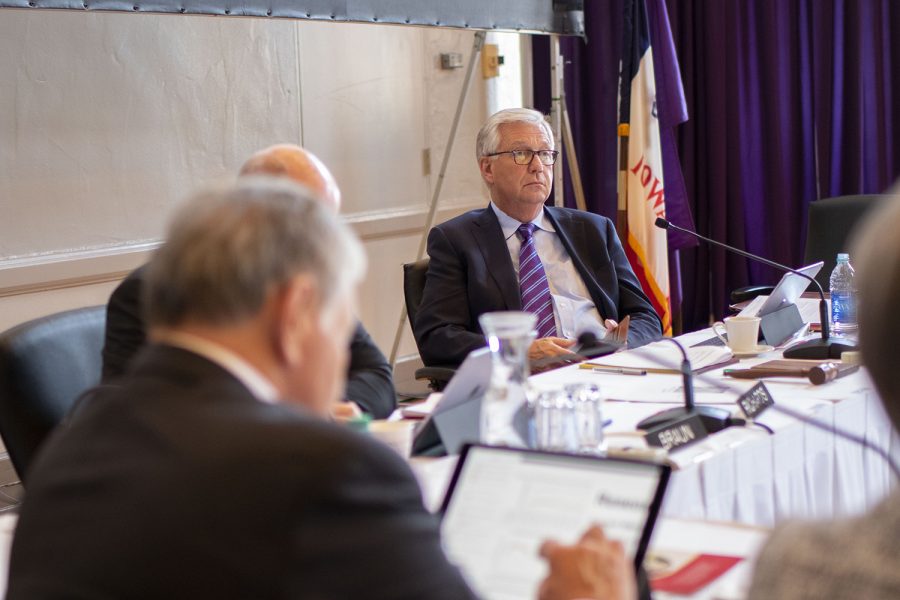Board of Regents president issues state of emergency over Iowa public universities
Due to COVID-19 spread, state Board of Regents President Mike Richards has declared a state of emergency over Iowa’s public universities.
Regents President Mike Richards listens during the state Board of Regents meeting at the University of Northern Iowa in Cedar Falls on Friday, November 15, 2018.
March 18, 2020
In acknowledgement of the rapid spread of COVID-19, state Board of Regents President Mike Richards has declared a state of emergency.
Richards said in a statement that to help minimize the spread at the public universities, the regents have been following guidance provided by the Centers for Disease Control and Prevention, the Iowa Department of Public Health, the Governor’s Office, and others.
“However, the threat is continuing to grow, and as such, in accordance with Board of Regents Policy, I am declaring that a State of Emergency exists at all institutions under the jurisdiction of the Board of Regents, as there are current circumstances that pose an imminent threat to the health and safety of persons or property at our institutions,” Richards said in the statement.
In response to the declaration of a state of emergency, five regents policies and administration rules are being waived or altered. This includes the limitation on sick leave that an employee is permitted, absence to provide care for minor dependents due to schools or care facilities being closed, and the prohibiting of donationating vacation time to be used as sick leave.
The regents’ office is also authorized to permit employees to utilize up to an additional 80 hours of paid sick leave or other permitted purpose related to COVID-19. The public universities under the jurisdiction of the regents are authorized to provide instruction for all academic programs virtually.
The regents’ executive director is authorized to work with the universities to develop processes for implementing these actions for all or any individual institution.
“As I issue this state of emergency, the Board recognizes that each of our institutions is unique,” Richards said in the statement. “The Board is working with each institution to make individual decisions of how to implement any changes that work best for their campus.”



